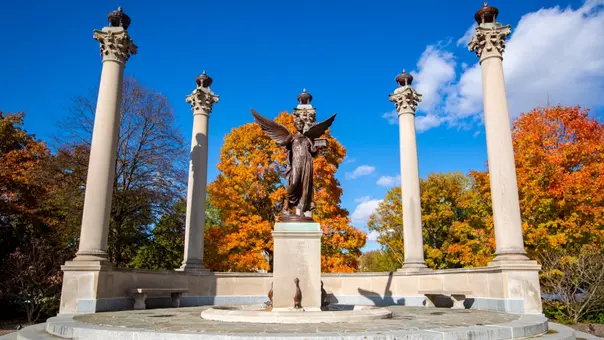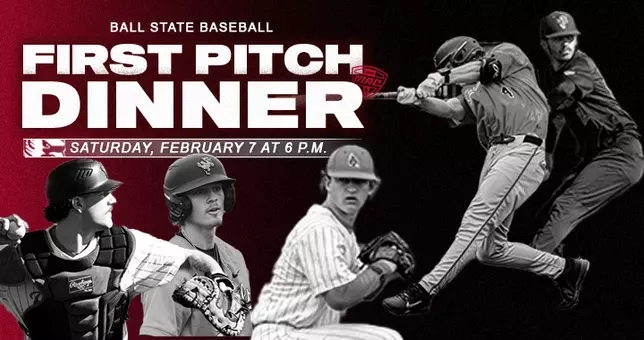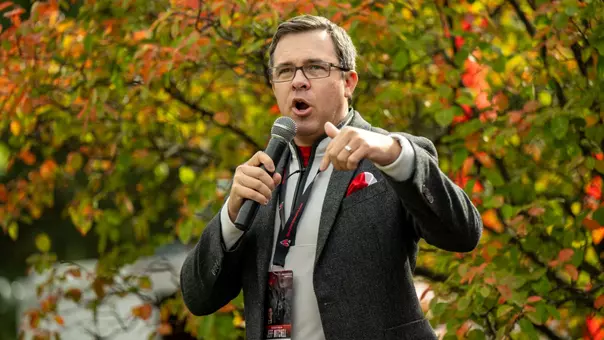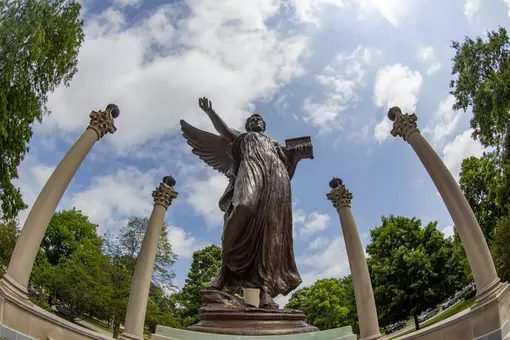Ball State University Athletics
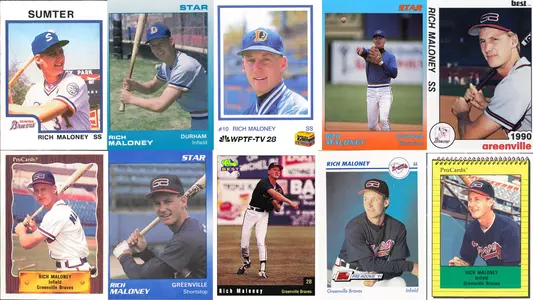
Maloney's March to 1,000 Wins, Part I: Rich Maloney, Shortstop
March 06, 2025 | Baseball, Cardinal Varsity Club
Rich Maloney – Baseball Player, Coach and Architect
Rich Maloney – Shortstop
 "When the money's on the line, you like to see the ball hit to him," said Class-A Manager Buddy Bailey about his young shortstop, Rich Maloney, in a 1987 interview with the Sumter The Daily Item, "and he's the one you'd like to see at the plate when it's crunch time. He's not flashy, just steady."
"When the money's on the line, you like to see the ball hit to him," said Class-A Manager Buddy Bailey about his young shortstop, Rich Maloney, in a 1987 interview with the Sumter The Daily Item, "and he's the one you'd like to see at the plate when it's crunch time. He's not flashy, just steady."
Now the head coach at Ball State, former Western Michigan and minor league shortstop Rich Maloney went on to play parts of six minor league seasons in the Atlanta Braves organization. After his rookie league debut with Pulaski (Va.) in the Appalachian League, he played 110 games in the South Atlantic League with Sumter (S.C.) where he batted .270 and recorded a .371 on-base percentage. He also stole 25 bases, the most he had at any stop of his career. He received a call up to Class-A Durham late that summer, and spent the next two years with the fabled Durham Bulls.
[Coincidental but unrelated to Maloney's career, it was following his first 20 games with the Bulls that most of the shooting for the 1988 film Bull Durham took place at Durham Athletic Park – immediately following his 1987 season.]
It was in 1988 with Durham, perhaps his finest pro season, that he was re-united with future major league manager Grady Little. Little was his manager in rookie ball at Pulaski, then began the '88 campaign with Maloney in Durham, and later directed the Boston Red Sox and Los Angeles Dodgers.
After 130 games and 555 plate appearances in his first full season in '87, Maloney played 126 games with the Bulls in 1988 and 118 in 1989. He established himself as a quality, dependable fielder, seeing time mostly at shortstop and occasionally second base or third base. His .970 fielding percentage in his first full year at Durham was the best of his career, and his 491 plate appearances were the most he compiled in any year with a single club. HIs batting average, though, dipped to .228 and .223 in those two seasons.
Listed at 6-1 and 175 pounds during his pro career, Maloney reached AA after 264 games and two-plus seasons in Durham. He was beckoned to the Greenville Braves to start the 1990 campaign under Bailey, his former manager at Sumter. Then 25, he split time between Greenville and Durham – batting .205 in his first year in Double-A, and .300 after a demotion back with the Bulls.
He began the 1991 season with Greenville again, this time playing under former major league slugger Chris Chambliss, but after hitting .261 over 43 games, he retired and returned to his roots at WMU where he took an assistant coaching position with Fred Decker, his legendary coach who was inducted into the Michigan Baseball Hall of Fame in 2023.
"I remember the call," recalled Decker, harkening back his 1990 phone call to Maloney after he'd been sent back down to Durham. "He'd been in AA, then got sent back down. I called him and said, 'Hey, if you've had enough of this stuff, you can come back here. You'll be a heckuva coach.'"
Decker coached Maloney through four seasons at WMU, and retired after 29 seasons (1976-04) with more wins in the Mid-American Conference than any coach in league history (401). Maloney, entering this weekend's MAC-opening series against his alma mater, continues chasing his mentor while listed fourth in conference annals with 354 MAC victories.
The duo has been together as player, coach, colleagues and friends ever since Decker first scouted him at Roseville High School.
"When I first saw him in high school," Decker said, "he was the kind of kid that he recruits to Ball State – kids that have high upside. He didn't play as a freshman, but he worked hard and always kept getting better. He was discouraged after not playing as a freshman, but he just kept working and he became a great leader for our team."
Raised in the northern suburbs of Detroit, Maloney starred at Roseville where his No. 1 jersey has been retired and he was inducted into the school's hall of fame. Later, after two All-MAC first-team selections with WMU and honored as a third-team All-America shortstop as a senior in 1986, he was inducted in to the Broncos' athletic hall of fame, alongside Decker.
He was a three-year letterwinner under Decker and a two-time captain for WMU, where he played a year ahead of relief pitcher Bob Bevis – ironically now the father of one of Maloney's current Ball State stars, Blake Bevis. Bob, selected by the Blue Jays in the 1987 June Draft, says Maloney is just as competitive, now, as when they were playing for the Broncos.
"I remember him being super consistent," said Bob Bevis. "You just knew that when a ball was hit to him, it was an out. From a defensive standpoint, he had great hands. He was like Barry Larkin, in my eyes. He was Mr. Reliable, Mr. Consistent. He stayed on an even keel all the time. You wanted the ball hit to him. As a hitter, he hit to all fields and did whatever he could to help the team."
Maloney was Western's team MVP while batting .362 as a junior in 1985, and was twice named the top defensive player on the team. In 1986, he set the WMU career record for runs scored (124).
But it was Maloney's approach, and his influence on others, that rings loudest with his former teammate.
"What I remember more than anything was the way Rich had an influence on people. I was a freshman going to college. It can be kind of intimidating. Rich was a year ahead of me and I remember him on my very first day. Some guys ride the freshman, but Rich was the opposite. He was probably 19, I was 18, and I remember him being so mature, like he was '19 going on 30.' I was a scared freshman. Rich literally put his arm around me and tried to put me at ease. I still remember that to this day.
"I remember him being a really good person and it showed on the field, too. He was a leader. He was only a sophomore when I first met him, but he was already a great, scrappy hitter. He always got a hit in the clutch and he was a super hard worker. 'You have to work harder than everyone else,' is what he said then, and I hear him tell the guys, now."
"Did I appreciate Rich's ways as much back then? No, I was more interested in chasing the girls. We had a group of stand-up guys, that Rich was a part of. I was one of those renegade guys, but I remember Rich was always a leader. He stood out. I didn't fully appreciate his ways until later."
Under Decker's guidance and respected by teammates like Bevis, Maloney graduated from WMU with a communications and journalism degree in 1986, a month before his selection in the 13th round by the Braves. He later collected a graduate degree in English in 1993, during his time as an assistant coach.
Rising from Decker's tutelage and lessons learned in the minor leagues, Maloney charted his own path when he accepted the head coaching position at Ball State in May 1995. Thirty years later, Bevis' son is learning some of the same lessons.
Maloney's career baseball statistics, per Baseball Reference
Part II of this series will publish following his 999th career win.
This is the first of a three-part series chronicling the baseball life of Rich Maloney as he approaches the 1,000-win milestone in his college coaching career (996 through March 4). He is destined to become the NCAA's 10th active Division I coach with 1,000 wins, and the 69th overall. An important distinction for Maloney is that all 30 coaching seasons (20th year at Ball State, 10 at Michigan) have come at the Division I level. He will become just the sixth active coach and the 50th overall to earn all 1,000 wins with Division I programs.
- Part I examines his playing career.
- Part II covers his coaching career and will post following his 999th career win.
- Perhaps his biggest influence has been as the architect of a richly successful Ball State program and year-after-year growth including nearly annual improvements to its baseball stadium in Muncie. Part III discusses his role as the program's architect, and will run following his 1,000th win.
Rich Maloney – Shortstop
 "When the money's on the line, you like to see the ball hit to him," said Class-A Manager Buddy Bailey about his young shortstop, Rich Maloney, in a 1987 interview with the Sumter The Daily Item, "and he's the one you'd like to see at the plate when it's crunch time. He's not flashy, just steady."
"When the money's on the line, you like to see the ball hit to him," said Class-A Manager Buddy Bailey about his young shortstop, Rich Maloney, in a 1987 interview with the Sumter The Daily Item, "and he's the one you'd like to see at the plate when it's crunch time. He's not flashy, just steady."Now the head coach at Ball State, former Western Michigan and minor league shortstop Rich Maloney went on to play parts of six minor league seasons in the Atlanta Braves organization. After his rookie league debut with Pulaski (Va.) in the Appalachian League, he played 110 games in the South Atlantic League with Sumter (S.C.) where he batted .270 and recorded a .371 on-base percentage. He also stole 25 bases, the most he had at any stop of his career. He received a call up to Class-A Durham late that summer, and spent the next two years with the fabled Durham Bulls.
[Coincidental but unrelated to Maloney's career, it was following his first 20 games with the Bulls that most of the shooting for the 1988 film Bull Durham took place at Durham Athletic Park – immediately following his 1987 season.]
It was in 1988 with Durham, perhaps his finest pro season, that he was re-united with future major league manager Grady Little. Little was his manager in rookie ball at Pulaski, then began the '88 campaign with Maloney in Durham, and later directed the Boston Red Sox and Los Angeles Dodgers.
After 130 games and 555 plate appearances in his first full season in '87, Maloney played 126 games with the Bulls in 1988 and 118 in 1989. He established himself as a quality, dependable fielder, seeing time mostly at shortstop and occasionally second base or third base. His .970 fielding percentage in his first full year at Durham was the best of his career, and his 491 plate appearances were the most he compiled in any year with a single club. HIs batting average, though, dipped to .228 and .223 in those two seasons.
Listed at 6-1 and 175 pounds during his pro career, Maloney reached AA after 264 games and two-plus seasons in Durham. He was beckoned to the Greenville Braves to start the 1990 campaign under Bailey, his former manager at Sumter. Then 25, he split time between Greenville and Durham – batting .205 in his first year in Double-A, and .300 after a demotion back with the Bulls.
He began the 1991 season with Greenville again, this time playing under former major league slugger Chris Chambliss, but after hitting .261 over 43 games, he retired and returned to his roots at WMU where he took an assistant coaching position with Fred Decker, his legendary coach who was inducted into the Michigan Baseball Hall of Fame in 2023.
"I remember the call," recalled Decker, harkening back his 1990 phone call to Maloney after he'd been sent back down to Durham. "He'd been in AA, then got sent back down. I called him and said, 'Hey, if you've had enough of this stuff, you can come back here. You'll be a heckuva coach.'"
Decker coached Maloney through four seasons at WMU, and retired after 29 seasons (1976-04) with more wins in the Mid-American Conference than any coach in league history (401). Maloney, entering this weekend's MAC-opening series against his alma mater, continues chasing his mentor while listed fourth in conference annals with 354 MAC victories.
The duo has been together as player, coach, colleagues and friends ever since Decker first scouted him at Roseville High School.
"When I first saw him in high school," Decker said, "he was the kind of kid that he recruits to Ball State – kids that have high upside. He didn't play as a freshman, but he worked hard and always kept getting better. He was discouraged after not playing as a freshman, but he just kept working and he became a great leader for our team."
Raised in the northern suburbs of Detroit, Maloney starred at Roseville where his No. 1 jersey has been retired and he was inducted into the school's hall of fame. Later, after two All-MAC first-team selections with WMU and honored as a third-team All-America shortstop as a senior in 1986, he was inducted in to the Broncos' athletic hall of fame, alongside Decker.
He was a three-year letterwinner under Decker and a two-time captain for WMU, where he played a year ahead of relief pitcher Bob Bevis – ironically now the father of one of Maloney's current Ball State stars, Blake Bevis. Bob, selected by the Blue Jays in the 1987 June Draft, says Maloney is just as competitive, now, as when they were playing for the Broncos.
"I remember him being super consistent," said Bob Bevis. "You just knew that when a ball was hit to him, it was an out. From a defensive standpoint, he had great hands. He was like Barry Larkin, in my eyes. He was Mr. Reliable, Mr. Consistent. He stayed on an even keel all the time. You wanted the ball hit to him. As a hitter, he hit to all fields and did whatever he could to help the team."
Maloney was Western's team MVP while batting .362 as a junior in 1985, and was twice named the top defensive player on the team. In 1986, he set the WMU career record for runs scored (124).
But it was Maloney's approach, and his influence on others, that rings loudest with his former teammate.
"What I remember more than anything was the way Rich had an influence on people. I was a freshman going to college. It can be kind of intimidating. Rich was a year ahead of me and I remember him on my very first day. Some guys ride the freshman, but Rich was the opposite. He was probably 19, I was 18, and I remember him being so mature, like he was '19 going on 30.' I was a scared freshman. Rich literally put his arm around me and tried to put me at ease. I still remember that to this day.
"I remember him being a really good person and it showed on the field, too. He was a leader. He was only a sophomore when I first met him, but he was already a great, scrappy hitter. He always got a hit in the clutch and he was a super hard worker. 'You have to work harder than everyone else,' is what he said then, and I hear him tell the guys, now."
"Did I appreciate Rich's ways as much back then? No, I was more interested in chasing the girls. We had a group of stand-up guys, that Rich was a part of. I was one of those renegade guys, but I remember Rich was always a leader. He stood out. I didn't fully appreciate his ways until later."
Under Decker's guidance and respected by teammates like Bevis, Maloney graduated from WMU with a communications and journalism degree in 1986, a month before his selection in the 13th round by the Braves. He later collected a graduate degree in English in 1993, during his time as an assistant coach.
Rising from Decker's tutelage and lessons learned in the minor leagues, Maloney charted his own path when he accepted the head coaching position at Ball State in May 1995. Thirty years later, Bevis' son is learning some of the same lessons.
Maloney's career baseball statistics, per Baseball Reference
Part II of this series will publish following his 999th career win.
Players Mentioned
This Week in Ball State Sports // Guests: World Series Champion Alex Call and AD Jeff Mitchell
Thursday, January 22
Sports Link: Michael Shebek's Power of Beneficence
Friday, November 07
Homecoming // Cardinal Sinners! Presented by Gameday Spirit
Friday, October 17
Baseball // 5 AM Workouts
Tuesday, August 26

